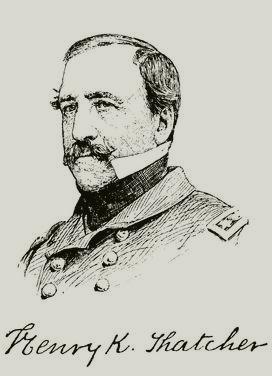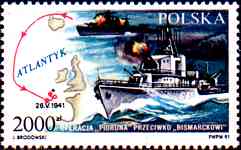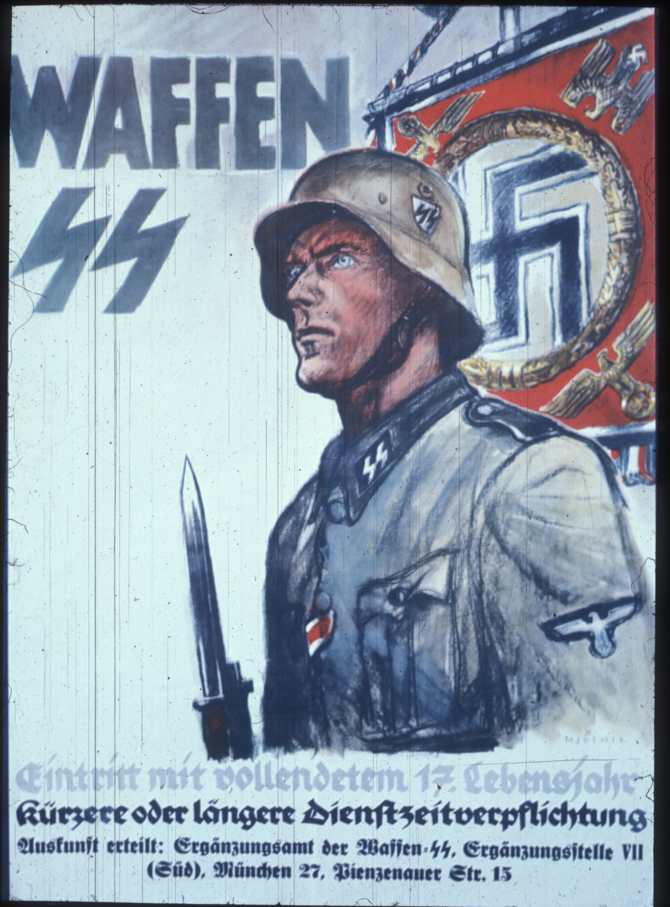
May 26 In the 1890s he became a championship cyclist, and at the turn of the century he discovered motor racing. Driving Panhard cars he came fifth in the Paris-Berlin road race of 1901, and then won the Paris-Vienna in 1902. With his mechanic he covered the 615 miles to the Austrian capital in just 16 hours along unmade roads. In 1903 he came in third in that year's Gordon Bennett Race, which was held in Ireland after the French government banned racing on open roads as too dangerous. Farman himself became a casualty of the sport when he was involved in a serious accident. He fully recovered, but the experience destroyed his enthusiasm for cars. Nevertheless his fascination with machinery endured. He was aware of the Voisin float-glider experiments on the Seine during 1905/06, and he had flown in balloons before with his brother, Richard. When the Voisins began to produce a powered aeroplane for sale in 1907 he was one of their first customers. He made his first flight at the end of September and, displaying his usual sure feel for machines, he was soon able to stay in the air longer than anyone else...

1521 Martin Luther is banned by the Edict of Worms because of his religious beliefs and writings.
1647 A new law bans Catholic priests from the colony of Massachusetts. The penalty is death for a second offense.

1659 Aurangzeb formally ascends the Mogul throne.
1667 Birth: Abraham De Moivre, French mathematician; De Moivre's theorem.
1670 Charles II and Louis XIV sign a secret treaty in Dover, England, ending hostilities between England and France.

1689 Birth: Lady Mary Wortley Montagu, English essayist, feminist, eccentric.
1691 Death: Jacob Leiser, leader of the popular uprising in support of William and Mary's succession to the throne; executed for treason.
1703 Death: Samuel Pepys. "English writer and government official. His famous Diary provides an intimate self-portrait and a vivid picture of an exciting period in English history. Pepys also became known for his role in the development of the British Navy. His diary covers the period from 1660 to 1669. It deals with an early part of Pepys's life, when he was clerk of the navy. He wrote the Diary in a code combination of shorthand, foreign words and phrases, and contractions of his own invention. Pepys meticulously recorded events of his daily life. He wrote frankly about his affairs with women and his desire to become wealthy. He described his enthusiasm for music and the theater, and his interest in collecting books and paintings. Pepys told of his public career and his pride in his success. The Diary documents his curiosity about everything, from science to the gossip at the court of King Charles II. Pepys did not intend to have the Diary read by the public, and he wrote about himself with unusual honesty. Pepys recorded many of the important events of the 1660's as a witness and participant. The Diary colorfully describes the restoration of the king as ruler of England. The work also contains thrilling accounts of the Great Plague, the Great Fire of London, and England's naval war with the Netherlands. In an especially memorable entry, Pepys related his court defense of the navy board after the board came under attack..."
1733 Richard Arkwright's assistant, John Kay, patents the Flying Shuttle to work on his boss's spinning frame.
1736 Battle of Ackia: British and Chickasaw forces defeat the French. "The Battle of Ackia (uh-KEE-uh) took place on May 26, 1736 near present-day Tupelo, Mississippi, part of a struggle for control of the Mississippi River. The French sought to use the river to link their colony of Louisiana with the northern part of New France, but Native American tribes such as the Chickasaws and the Natchez contested French control of the river valley. Ackia, a Chickasaw village, was attacked by a force of Frenchmen and Choctaws under the command of the governor of Louisiana, Jean Baptiste Le Moyne, Sieur de Bienville. The Chickasaws, who were allies of the English, successfully repulsed the attack. The Ackia battleground was made a U.S. National Monument in 1938; it was absorbed into the Natchez Trace Parkway in 1961 and is now called "Chickasaw Village."
1759 Birth: Mary Wollstonecraft Godwin, writer, mother of Mary Shelley.
1771 Birth: Rahel Varnhagen von Ense-Levin, German saloon owner, author.
1798 Irish Rebellion: British forces massacre about 500 Irish insurgents at the Battle of Tara.
1799 Birth: August Kopisch, German writer; Die Heinzelmännchen von Köln.
1799 Birth: Alexander S. Pushkin, in Russia, poet, writer; Eugene Onegin.
1805 Napoleon Bonaparte is crowned king of Italy in Milan cathedral.

1806 Birth: Henry Knox Thatcher, Union Navy Commander. "...born in Thomaston, Maine, 26 May, 1806; died in Boston, Massachusetts, 5 April, 1880. He was a grandson of General Henry Knox. He received his early education in the schools of Boston, and in 1822 was admitted as a cadet at the United States military academy. The records of the academy show that he was absent on sick-leave from 28 November, 1822, till April, 1823, when his resignation is recorded. He had exchanged his cadetship for the appointment in the navy, which he entered as a mid-shipman, 4 March, 1823. He became a passed midshipman, 23 March, 1829, and was commissioned lieutenant, 28 February, 1833. After serving in various parts of the world, he was promoted to commander by action of the naval retiring board, 14 September, 1855. He commanded the sloop " Decatur," Pacific station. Early in 1862 he was ordered to command the sailing-sloop "Constellation" on the Mediterranean station, and he was thereby prevented from engaging in active operations during the first years of the civil war..."
1834 The Portuguese Civil War ends with the capitulation of the pretender, Dom Miguel.
1835 A resolution is passed in the US Congress declaring that Congress has no authority over state slavery laws.
1836 The United States House of Representatives adopts the Gag Rule, designed to restrict needless, overly long discussion about legislation in Congress.

1864 The territory of Montana is organized.
1865 US Civil War: The last Confederate resistance ends when General Kirby Smith surrenders at New Orleans. The Confederates had already signed a surrender on 9 April.

1865 Birth: Akseli V. Gallen-Kallela, Finnish painter, graphic artist, illustrator. See Also: 1521.
1868 Irish nationalist Michael Barrett is hanged outside Newgate Prison, for a bomb attack at Clerkenwell, London which left 13 dead; the last public execution in England.
1868 The impeachment trial of President Andrew Johnson ends with his acquittal on all remaining charges of "high crimes and misdemeanors."

1873 Birth: Henry Farman, French aviation pioneer. "...Henry Farman was born in 1873, the son of a respected English newspaper correspondant working in Paris. Henry trained as a painter at the École des Beaux Artes, but quickly become obsessed not with painting, but with the new mechanical inventions that were rapidly appearing at the end of the nineteenth century. Since the Farmans were well-off he was able to pursue this interest as an amateur sportsman. Farman had a natural flair for getting the 'feel' of a piece of machinery, and enjoyed considerable success.


1879 The British and Afghans sign the Treaty of Gandamak giving the British control of the Khyber Pass.

1890 Birth: Kurt Edzard, German sculptor.
1895 Birth: Dorothea Lange, US documentary photographer.
1896 The last Czar of Russia, Nicholas II, is crowned.

1903 Birth: Otto Abetz, German Ambassador to Vichy France from November 1940 until France's liberation in 1944. Abetz will regard anti-Semitism as a necessary means of undermining the grip of the army and Church in Vichy and will suggest the expulsion of all emigrants and stateless Jews to the Free Zone. In July 1949, he will be sentenced to twenty years hard labor by a Paris military tribunal, as a war criminal. Will be released in 1954, and burned to death in an automobile "accident" on the Cologne-Ruhr autobahn in 1958 when something will go wrong with the steering wheel of his car. It is will suspected that his death is a revenge killing for his role in sending French Jews to the gas chambers.
1918 The Georgian Social Democratic Republic declares independence from Russia.
1927 Diplomatic relations between Great Britain and Russia are temporarily disrupted because of friction caused by Communist agitation, a clear violation of treaty agreements.
1933 Church and Reich: Some 1,200 Protestant clergymen in the US sign a manifesto protesting Nazi treatment of Jews and others.
1936 Austria announces its intention not to attend the Geneva conference on German refugees.
1938 The House Committee on Un-American Activities begins its work of searching for 'subversives' in the United States.
1939 Ribbentrop instructs Schulenburg to inform Molotov that Germany's hostility to the Comintern will be abandoned if Hitler can be assured that the Soviets have, in fact, renounced their aggressive struggle against Germany as indicated by Stalin's recent speech.
1940 WW2: The British issue orders for Operation Dynamo, the evacuation from Dunkirk, France.

1941 WW2: The Polish destroyer Piorun valiantly exchanges fire with the German battleship Bismarck and signals its position to the British fleet.

1941 WW2: Himmler assigns a group of Waffen-SS to what he calls the Kommandostab Reichsführer SS, which in effect becomes his own private army. (Architect)

1942 WW2: Churchill and Molotov sign a twenty-year mutual aid treaty between Britain and the Soviet Union. (Freedman)
1942 WW2: In Libya, Rommel attacks the British Gazala Line, starting a drive from Libya that will soon take him to El-Alamein, 60 miles from Alexandria, Egypt.
1945 WW2: Himmler is buried in an unmarked grave in a forest near Luneberg. Its exact location is unknown.

1945 WW2: US Army Intelligence officers interrogate Hitler's sister Paula at Berchtesgaden. (Berlin Document Center)
1946 A patent is filed in the US for the H-Bomb.
1948 The Nationalist Party, with an already fully developed apartheid policy, takes power in South African elections, beating the United Party by 70 seats to 65.
1950 Petrol rationing finally comes to an end in Britain.
1951 Birth: Sally Kristen Ride, US astronaut.
1960 US Ambassador to the UN Henry Cabot Lodge, accuses the Soviets of hiding a microphone inside a wood carving of the Great Seal of the United States that had been presented to the US Embassy in Moscow.
1961 The civil rights activist group, Freedom Ride Coordinating Committee, is established in Atlanta.
1966 British Guiana becomes an independent member of the Commonwealth, changing its name to Guyana.
1969 The Apollo 10 astronauts return to Earth after a successful eight-day dress rehearsal for the first manned moon landing.

1971 The Soviet Union's answer to Concorde, the TU-144, makes its debut in the West at the Paris Air Show.
1971 Birth: Matt Stone, actor, cartoonist, writer; South Park.
1977 George Willig, The Human Fly, scales the World Trade Center in New York City, by fixing himself up to the window washer mechanism and walking straight up until falling into police custody when he reaches the top. It takes Willig three and a half hours to make the climb, and $1.10 in fines; a penny per floor.
1981 Fourteen people are killed when a Marine jet crashes onto the flight deck of the aircraft carrier USS Nimitz off Florida.
1990 Soviet maverick politician Boris Yeltsin fails in a second round of voting to win the presidency of the Russian Federation. Note: He will succeed in a third round three days later.
1991 Zviad Gamsakhurdia is elected president of Georgia.
1993 The Pakistan supreme court reinstates Prime Minister Nawaz Sharif and parliament after they had been dissolved by President Ghulam Ishaq Khan.
1996 Albania's opposition parties pull out of the election on polling day because of 'terror' and manipulation of the poll by the ruling Democratic Party.
1997 Australian Prime Minister John Howard makes an unexpected personal apology to tens of thousands of Aborigines forcibly taken from their parents under a past government policy of assimilation.
1997 The Russian-Belarus Union Charter is signed by Lukashenko and Yeltsin.
1999 Indian aircraft fire on separatist guerrillas in the Kashmir province and Pakistan threatens retaliation; the first use of air power in years in the long-running conflict over the Himalayan border region.
2001

2002

2003

2004

2005

2005

2005

2005

2005

Visit:




 Visit:
Visit:

Click Here to email the History: One Day At a Time webmaster.